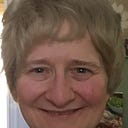I’m so grateful that I learned about how to manage money effectively in my late 30s. It needs to be part of the school curriculum in high school. I don’t think even middle school is too early. Economics should be a required course in high school so young people can get a firm grasp on how the world works.
By the time my husband and I started out together, we both had debt and no savings. After a few years of learning about how to manage our financial lives, we’d made several changes. Not only were we out of debt, we had enough saved in a tax-free savings account (TFSA) to put down half the cost of a new vehicle and therefore pay a lot less per month. We paid if off two years early with a tax refund.
We no longer spend impulsively. If there is a book I hear about that I’d like, I put it on my Amazon wishlist. We don’t look at catalogues, commercials or apps that feature products.
I was reading Medium articles and hitting the paywall for several months before I finally subscribed. I’m seriously considering getting the paid version of Canva, but I’ve not done it yet. Instead of paying for Grammarly, I did some research and settled for the free version of ProWritingAid.
Every week we check on how much we have in our accounts. We have one credit card that we use for all of our purchases because it gives us a cash reward in February of the following year. Last year, we got $500. We track our expenditures and pay off the balance of this card at the end of every week.
Now that we’re both retired, we live on much less than we had while we were both working. We don’t spend what we don’t have. We’re not rich, but we have enough to spare that we have the freedom to help family members and friends when they need it.
